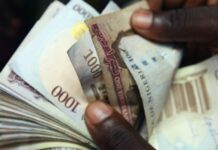By Francis Ogwo
Nigeria lost an estimated N1trillion in expected revenue in the first quarter of 2020 due to the ongoing global economic slowdown.
The Federal Government had projected to earn N1.96 trillion revenue mainly from oil sales in the first three months of the year, but only a paltry sum of N950.5bn came into the national purse during the period.
Federation Account Allocation Committee (FAAC) sources told KaftanPost that the economic slowdown experienced in Nigeria in the first quarter of the year had a heavier toll on the non-oil sector than it was on oil sector, which most analysts had written off.
Analysts had projected a revenue shortfall in government treasury, which will largely be driven by weakness in crude oil prices but fell sharply in Q1 from $66 at the start of the year to $22.75 at the end of Q1 2020.
However, data obtained from Nigeria’s 2020-revised budget report showed a 30% decline in oil revenue compared to non-oil revenue, which fell 40% below its budgeted estimate for Q1.
In terms of lost value, oil revenue dropped by around N195.3bn compared to non-oil revenue fall of around N181.87bn. This however, only reflects Nigeria is steadily funded by oil revenue and the high income from oil is what will cause the actual amount to surpass the drop in non-oil revenue even though, based on a percentage decline, the non-oil revenue had a worse performance.
The impact of lower oil income earned is already been felt by all tiers of government as they experienced a drop in their allocations during the first three months of the year.
There was a drop in disbursement of the Federation Account Allocation Committee (FAAC), to the three tiers of government, from N716.3 billion in January to N581.57bn in March, representing a decline of about 18%.
There was a recent forecast by analysts that FAAC allocations may drop further to N370.89bn in the second half of the year if crude oil price averages $25/b this year. The forecast shows a drop of about 48% in FAAC disbursement from its January figure, which is in line with the 52% drop in revenue below budget in Q1.
Observers argue that this status should not be seen as strange, as the last time oil price averaged $30 in the market was in January 2016. The following month, only about N370bn was shared to all tiers of the government from the total earnings accrued in January 2016.
The Federal Government of Nigeria has now revised its oil price benchmark from $57 to $25 for the rest of the year. If oil prices average $25, then FAAC disbursements of less than N400bn could be the new reality for the government.
As at market close on Friday, the price of bonny light crude oil had risen to $38.27 as oil price has rallied strongly since the gradual reopening of the global economy.











